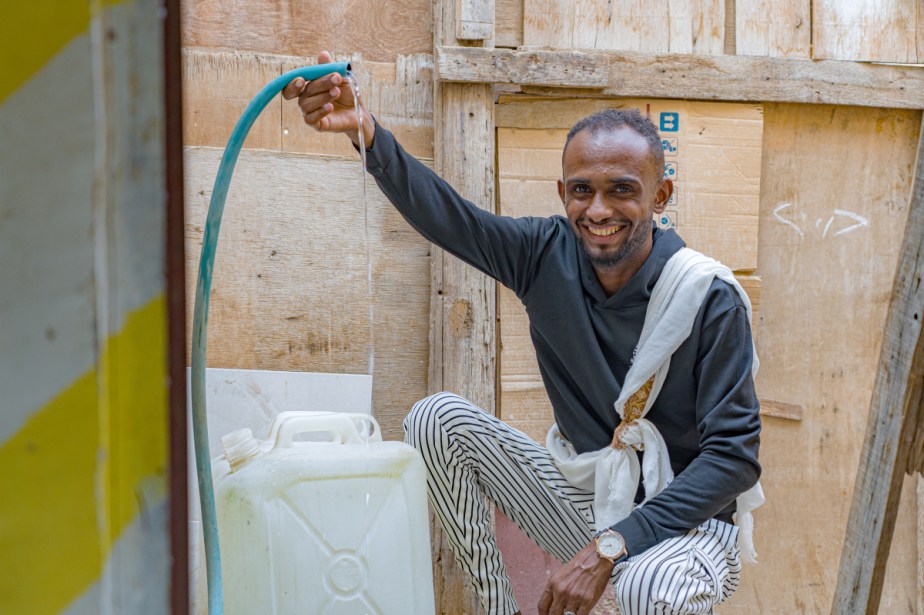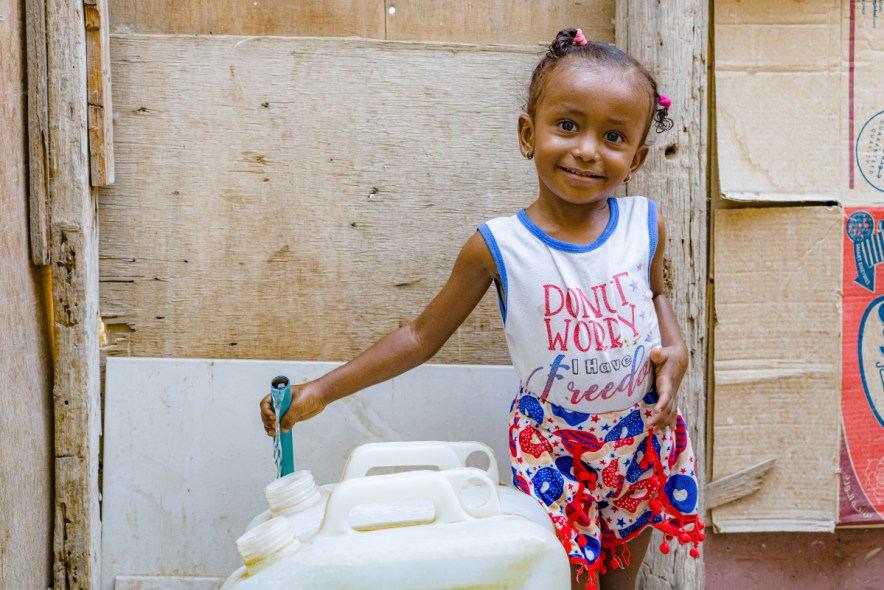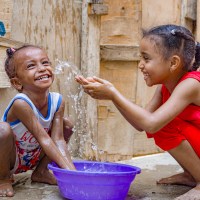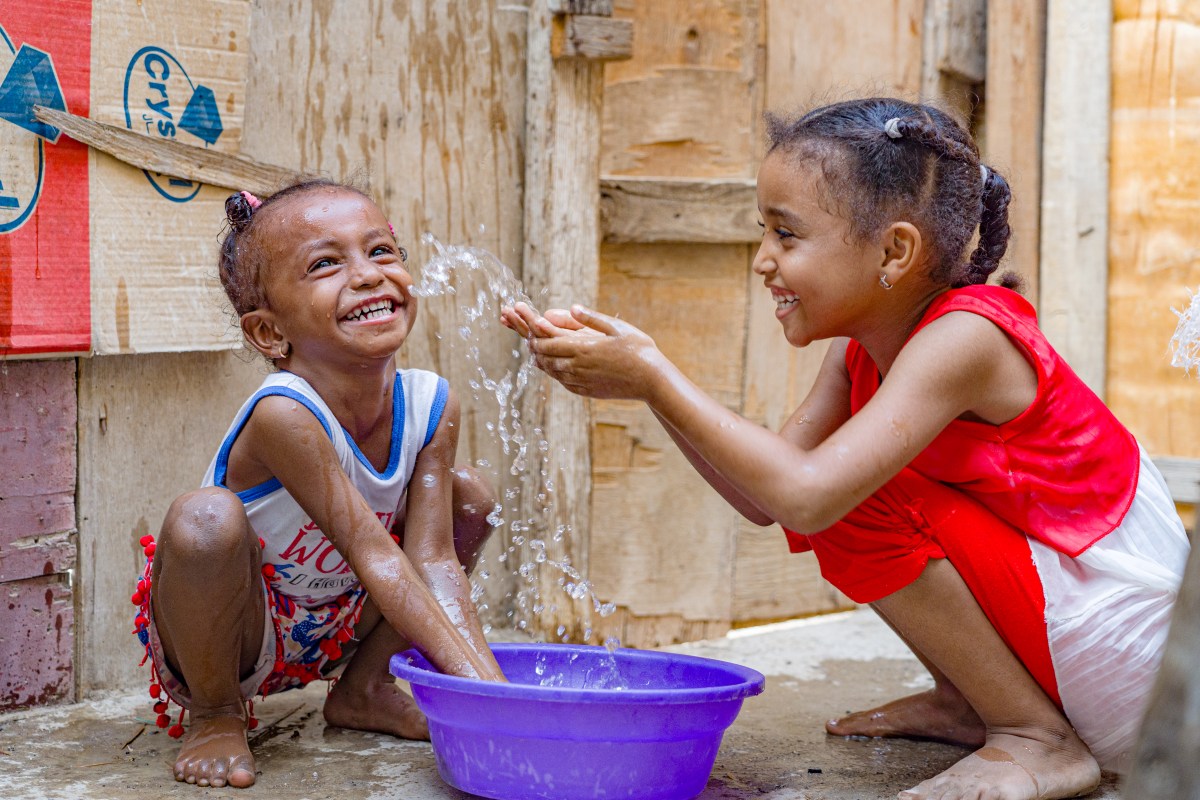When you got up this morning, did you brush your teeth, shower, or make coffee? Whatever your morning routine is, it involves water. Most of us have access to clean water with the flick of a faucet. But for over half of the people living in Yemen, having convenient access to clean water is an urgent need.
So much violent conflict begins as competition over too few resources. The last century saw us fight wars over land, oil, and minerals. This century, we’re also fighting over access to potable water. In Yemen, almost ten years of infrastructure-destroying war, mass displacement, a lack of water resource management, and climate change have further limited the availability of clean water. Experts predict Yemen could be one of the first countries to run out of useable water.
When households lack running water, women and girls as young as ten are sent to fetch it. They have to walk far outside their neighborhoods, leaving them vulnerable to harassment and sexual violence. Fearing stigmatization or victim blaming, many do not report incidents of sexual violence. Many who do are forced into marriage to save the family’s honor.
In June, July, and August, Yemen’s local temperatures hover in the mid-90s, forcing women and girls to walk in extreme heat to get water, further taxing their health. During the other seasons, families often prioritize having young girls fetch water over their going to school, which disrupts young girls’ learning.
Because most marginalized groups lack access to running water in their homes, they do not wash often and are ostracized for being dirty, intensifying their marginalization. Without proper hygiene practices, health outcomes deteriorate. A lack of potable water is an underlying cause of malnutrition and cholera in Yemen.

We use the Common Ground Approach to foster trust and collaboration between communities at odds. Insider mediators, the local leaders who hold sway in their communities and represent the dividing lines of a conflict, identify the causes of conflict and propose solutions. The insider mediators decide on one solution that everyone wants. This solution is the common ground upon which trust and collaboration can flourish.
For a community we support in southern Yemen, the insider mediators identified access to water as a leading cause of tension in their community. Representatives from each dividing line in conflict and the local authorities agreed that repairing the water network was the shared solution everyone wanted to accomplish.
The insider mediators put together a bid to fix the water network and brought it to the local authorities for approval. Involving the local authorities ensures we don’t create a parallel system or added dependency in the community. Thanks to our donors, we were able to rehabilitate the water network and connect 350 households to running water.
Due to water scarcity, the local water authority sets a schedule to pump water into people’s houses, usually every other day. To have water on the off days, family members collect water in plastic tanks and store the tanks in their yards.

Saying water is the source of life is cliche, but in Yemen, connecting 350 families to running water fostered a healthier community. Sexual violence in the community decreased as women and girls no longer had to travel outside their neighborhoods to get water. Girls could attend classes during the school year instead of skipping school to get water. No one had to walk in extreme heat and risk dehydration. No one had to stand in line to collect water from public sources, where fights used to break out. People could wash more often, restoring a sense of dignity, reducing the transmission of cholera, and mitigating malnutrition.
When we embark on peacebuilding initiatives, we commit to supporting a community for the long haul. Since 2010, we’ve been addressing the root causes of violence and instability in Yemen, fostering social cohesion between host communities, returnees, and internally displaced people using our Common Ground Approach. From their training, insider mediators diffuse conflicts before they become violent, empowering communities for the long haul.
We’ve stood alongside Yemeni communities by furnishing desk sets or installing solar-powered street lights, as dictated by each community’s needs. Today, we are peacebuilding by improving access to water. Peace moves at the speed of trust. Sometimes it trickles as trust builds. Sometimes, it ebbs as tensions rise, and sometimes, it flows, reminding us that we belong to one another.


